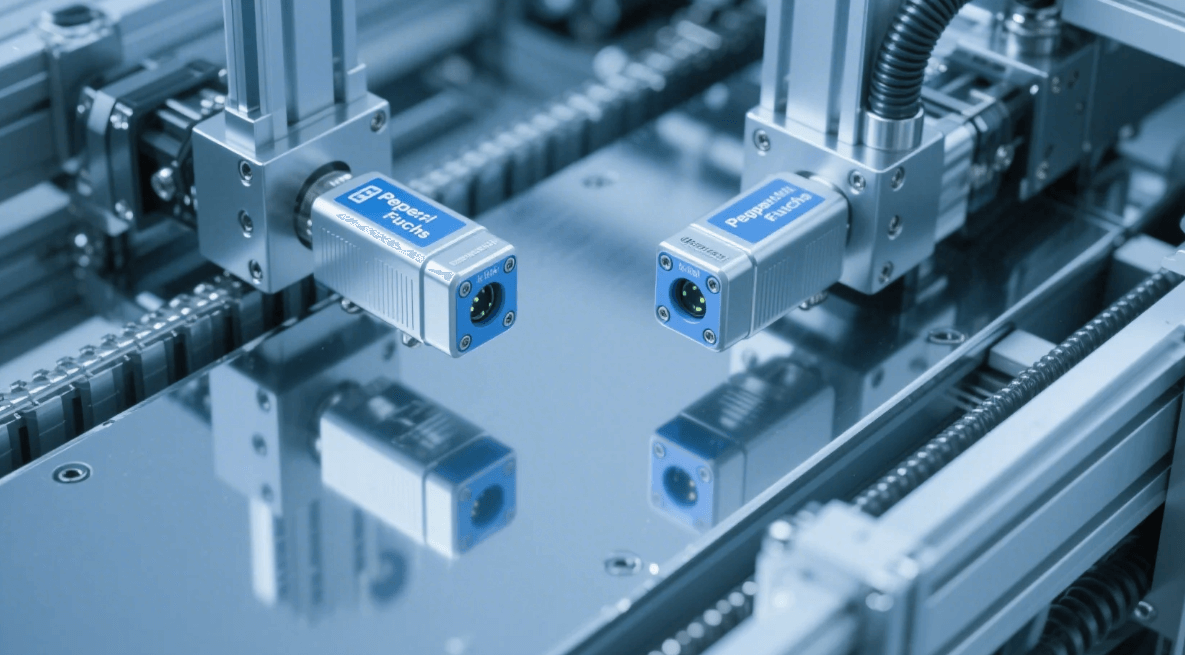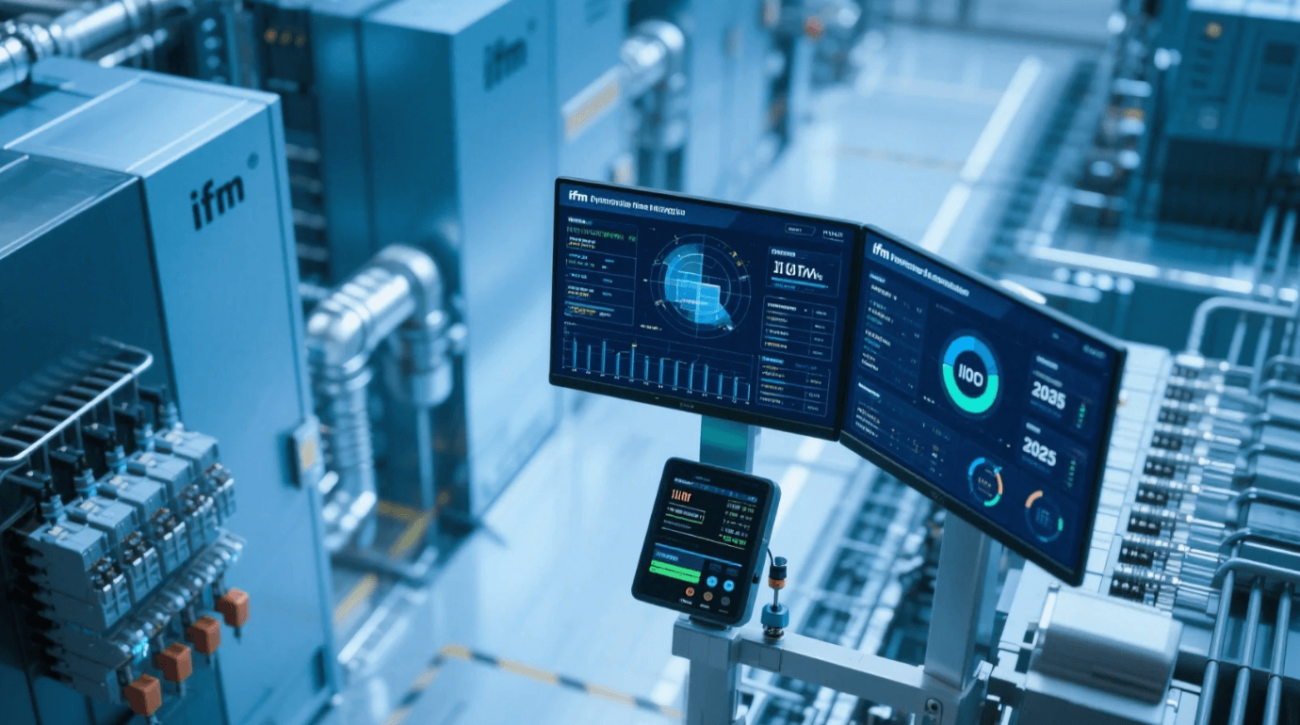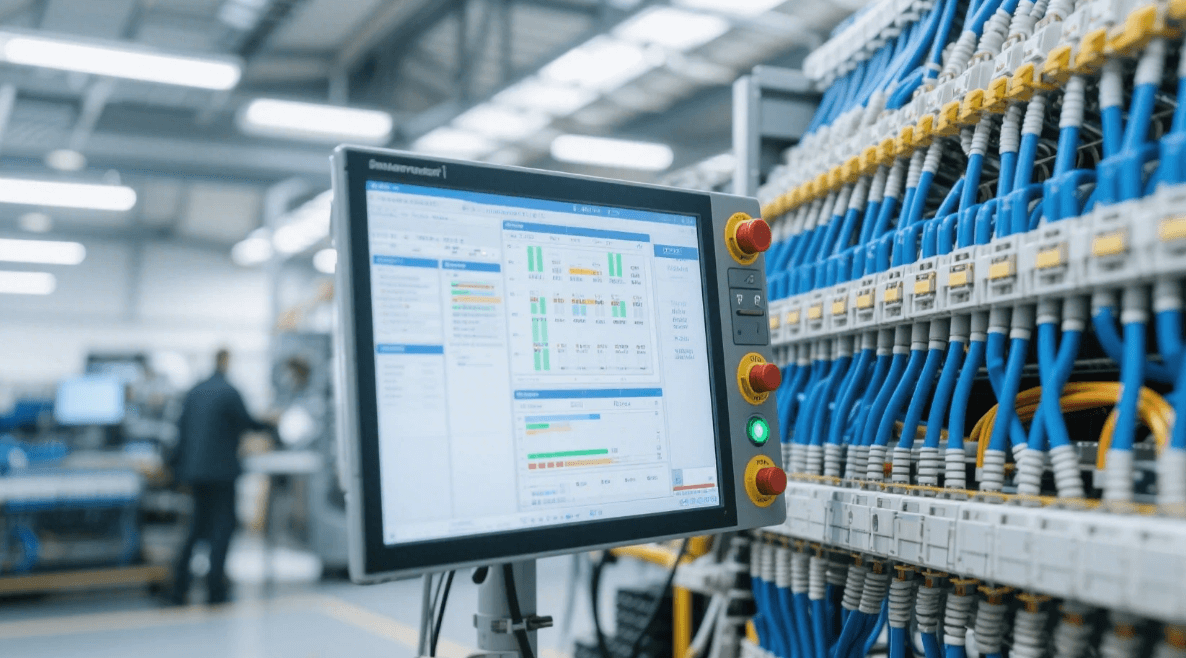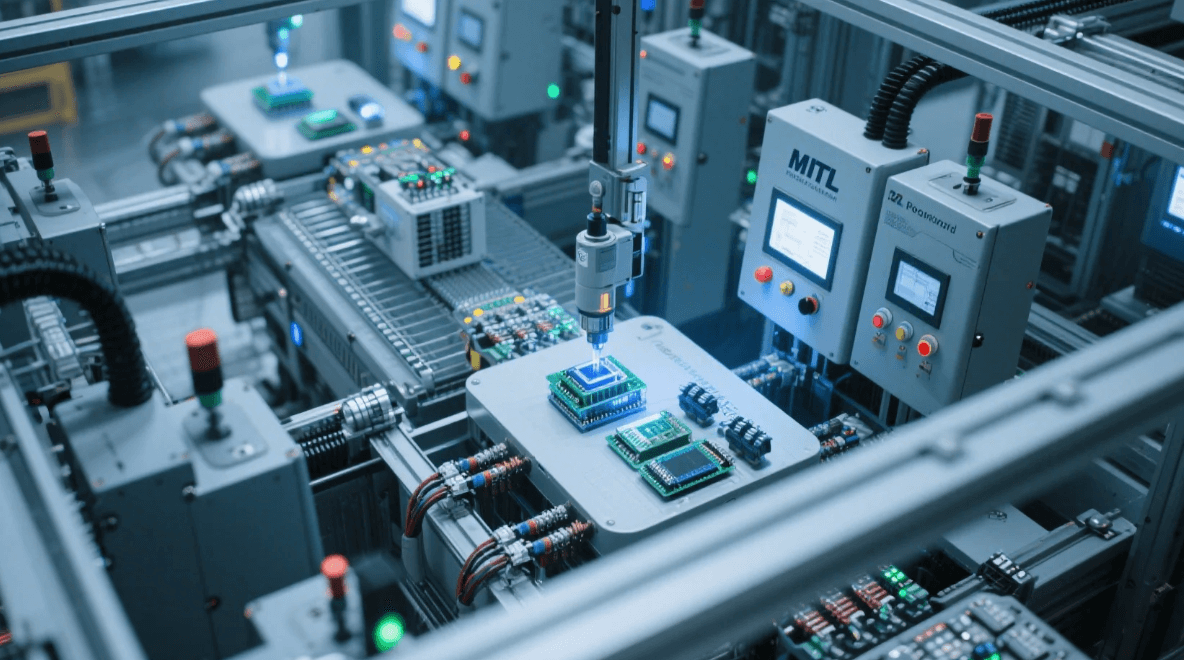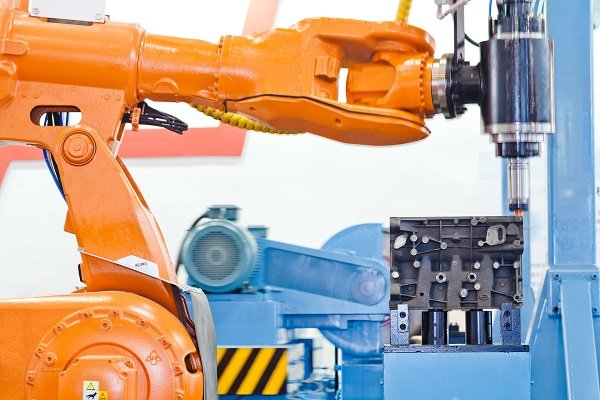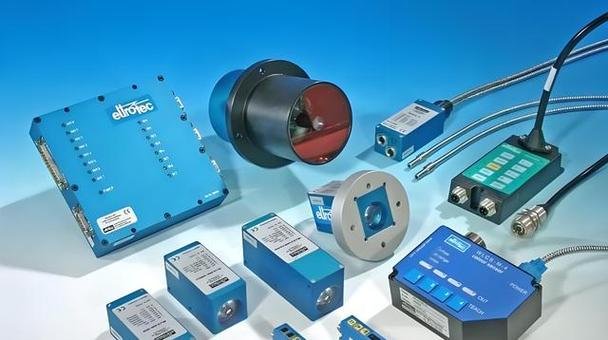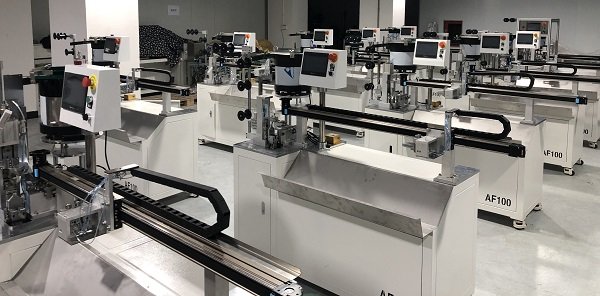Wide range of sensors for industrial applications
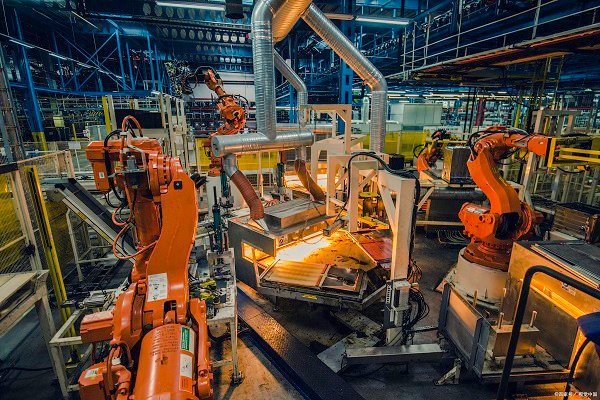
In today’s fast-paced industrial world, the efficiency and accuracy of processes are paramount. Sensor solutions play a crucial role in advancing industrial automation by ensuring seamless operations, precision, and real-time data acquisition. These technologies are pivotal for industries seeking to enhance production efficiency, reduce costs, and improve product quality. As automation continues to evolve, the potential of sensor solutions in various industrial applications is expanding, providing a glimpse into a smarter, more efficient future.
Understanding Sensor Solutions: A Game-Changer in Industrial Automation
At its core, a sensor solution is a device that detects changes in the environment or a system and converts that information into signals that can be read and acted upon by machines or humans. These solutions are integrated into various industrial systems to monitor and control critical parameters such as temperature, pressure, humidity, speed, and position, allowing for automation at an unprecedented level of accuracy.
The industrial sector, particularly in automation, has long been reliant on sensors to enhance the functionality of machinery and equipment. The applications of sensor solutions are broad, ranging from factory automation and process control to robotics, automotive, and aerospace industries. With a growing demand for high precision, efficiency, and scalability, sensor solutions are the backbone of modern industrial infrastructure.

Wide Range of Sensors for Industrial Applications
The industrial sector’s dependence on a wide range of sensors has led to the development of highly specialized solutions. Here are some of the most widely used sensors in industrial automation today:
Temperature Sensors: Crucial in industries such as manufacturing, chemical processing, and energy, these sensors ensure processes operate within optimal thermal ranges.
Pressure Sensors: Vital for monitoring pressure in fluid systems, ensuring systems function without failure or leakage in industries like oil & gas, automotive, and water treatment.
Proximity Sensors: Widely used in factory automation, these sensors detect the presence or absence of objects without physical contact, making them essential in assembly lines and material handling.
Flow Sensors: Utilized in industries such as food and beverage, pharmaceuticals, and chemical processing, these sensors monitor the flow rate of liquids and gases in pipelines and tanks.
Humidity Sensors: Important in controlling environmental conditions in manufacturing spaces, especially in industries sensitive to moisture levels, such as pharmaceuticals and electronics.
These sensors serve as the foundation for building an interconnected and highly efficient industrial system where everything from machines to production lines can communicate in real time, ensuring smoother operations.
Key Advantages of Sensor Solutions in Industrial Automation
Enhanced Efficiency and Productivity
The primary advantage of sensor solutions in industrial automation is the significant increase in efficiency. Sensors provide real-time data that allows industries to monitor performance, detect problems early, and make adjustments before minor issues turn into costly repairs or downtime. This continuous monitoring of systems through sensors results in faster production cycles, optimized resource management, and higher overall productivity.
Moreover, sensor solutions help industries reduce human error. Automated systems that rely on sensors are capable of detecting subtle variations that may go unnoticed by workers, leading to faster decision-making and more precise outcomes. This ensures that production lines remain uninterrupted, leading to better productivity and output.
Predictive Maintenance and Reduced Downtime
One of the most valuable aspects of sensor solutions is their ability to provide predictive maintenance capabilities. Sensors can continuously monitor the health of equipment, providing early warnings of potential failures. For instance, vibration sensors can detect unusual movement in machinery that could indicate wear and tear, while temperature sensors can identify overheating parts.
With this real-time data, industrial companies can schedule maintenance before a failure occurs, drastically reducing unplanned downtime and repair costs. Predictive maintenance enabled by sensor solutions allows businesses to plan maintenance activities more effectively, ensuring equipment runs at peak performance and extending its lifespan.
Data-Driven Decision Making
Modern sensor solutions come equipped with the capability to gather vast amounts of data that can be analyzed for deeper insights. These insights can be used to improve operational processes, optimize production workflows, and identify inefficiencies. By integrating sensors into production systems, companies gain access to a wealth of information that can drive smarter decision-making.
This data-driven approach allows for better strategic planning, especially when it comes to inventory management, process optimization, and quality control. By using sensor solutions to collect data in real time, companies can make informed decisions that drive business growth.
Safety and Compliance
Safety is always a top priority in industrial environments, and sensor solutions play a critical role in enhancing workplace safety. For instance, gas detectors, smoke detectors, and temperature sensors can provide early warnings of dangerous conditions such as gas leaks, fires, or temperature fluctuations that could lead to hazardous situations.
Additionally, many industries operate in regulated environments where strict safety and environmental standards must be met. Sensor solutions ensure compliance with these regulations by continuously monitoring factors such as air quality, chemical exposure, and equipment performance. This constant monitoring not only protects workers but also ensures that companies avoid penalties associated with non-compliance.
Scalability and Flexibility
One of the standout features of sensor solutions is their scalability. As industrial operations expand, sensor solutions can be seamlessly integrated into existing systems, allowing businesses to scale up their automation capabilities without having to completely overhaul their infrastructure. The flexibility of sensor technologies means that industries can customize sensor configurations to meet their specific needs, providing the adaptability required for future growth.
For industries that are constantly evolving, whether it’s adjusting to increased production demands or adopting new technologies, sensor solutions offer the ability to remain competitive by providing the necessary adaptability for various applications.
Cost Savings and Energy Efficiency
By enabling more efficient use of resources and reducing downtime, sensor solutions contribute directly to cost savings. They can help businesses identify energy inefficiencies, such as machinery running longer than necessary, and recommend optimal operating conditions. Sensors like energy meters and flow meters track energy consumption and highlight areas where improvements can be made, ultimately lowering operational costs.
In the long run, the use of sensor solutions translates to significant savings in energy costs, waste reduction, and resource management, all of which contribute to a healthier bottom line.
The Future Outlook for Sensor Solutions in Industrial Automation
As industries continue to embrace Industry 4.0, the demand for sophisticated sensor solutions is set to grow. With advancements in technologies such as the Internet of Things (IoT), artificial intelligence (AI), and machine learning, sensor technologies will become even more intelligent and capable of driving autonomous systems.
In the future, sensor solutions will not only monitor systems but will actively make decisions in real time, allowing for fully automated processes that require minimal human intervention. This will further boost productivity, reduce costs, and accelerate the shift toward fully integrated smart factories.
Moreover, sensors will evolve to provide even greater accuracy, greater energy efficiency, and even higher levels of automation. As the technology continues to advance, industrial applications of sensor solutions will become more diverse, supporting sectors like smart grids, healthcare, autonomous vehicles, and more.
The Unmatched Benefits of Sensor Solutions in Industrial Automation
Sensor solutions are revolutionizing industrial automation by offering unparalleled benefits that are essential to the success of modern industries. From enhancing operational efficiency and productivity to ensuring predictive maintenance and safety, these solutions provide a comprehensive toolset that can optimize performance across various industrial applications.
The future of industrial automation is bright, and the widespread adoption of sensor solutions will be at the heart of this transformation. Industries that leverage these technologies will be better positioned to meet the challenges of tomorrow, from improved operational agility to enhanced sustainability and cost-efficiency. As automation continues to evolve, sensor solutions will remain indispensable in creating smarter, more efficient, and more productive industries.
| Model:IFM MN702S |

